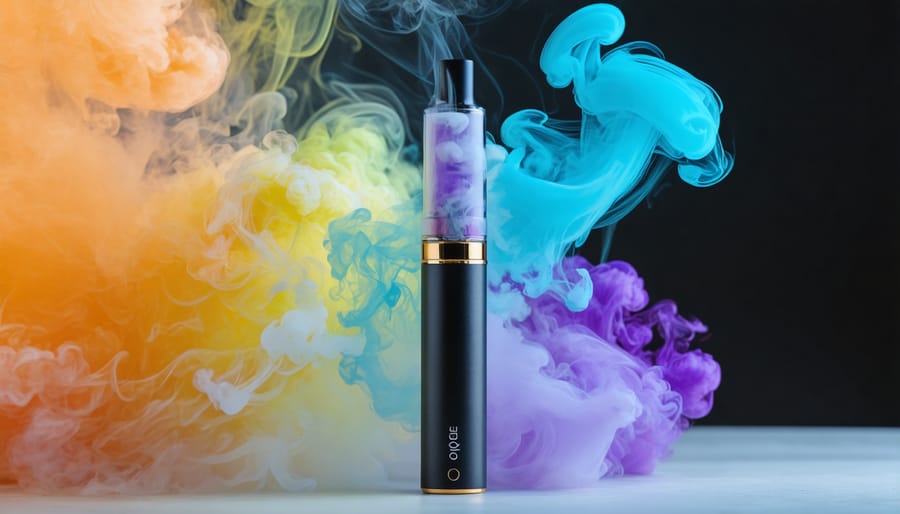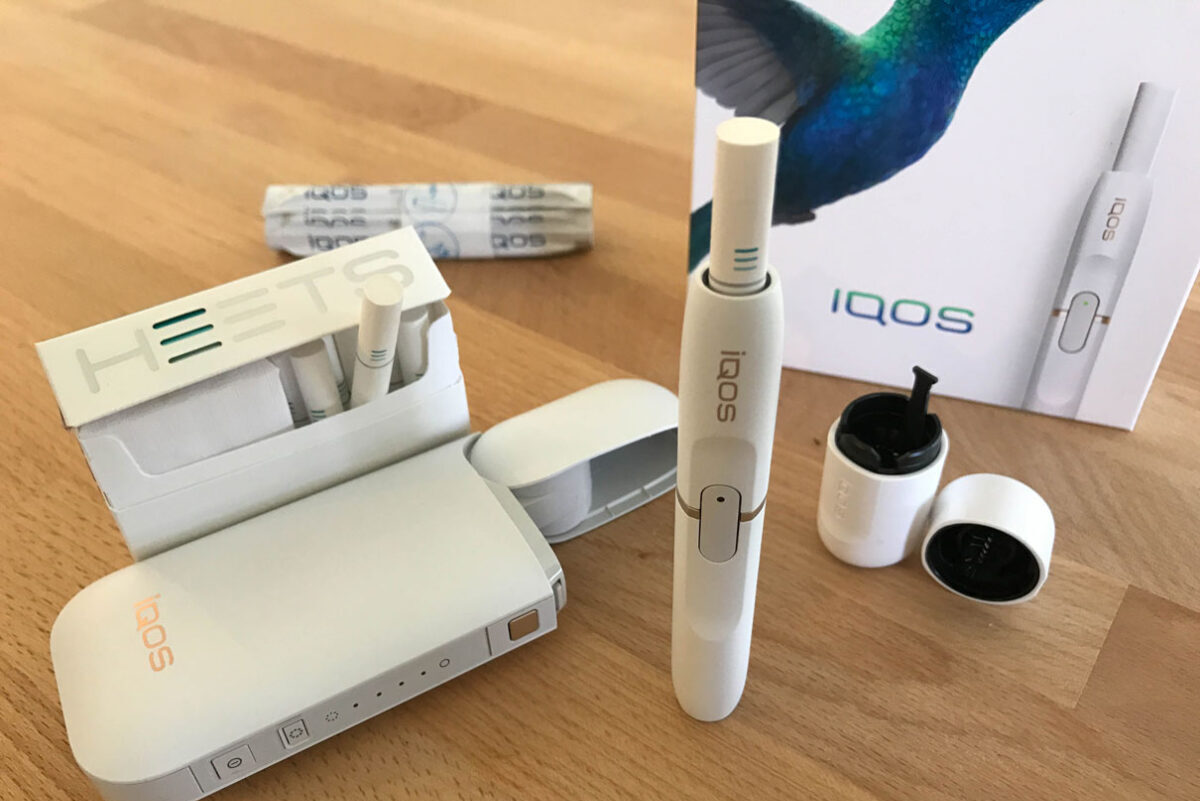The relationship between vaping and mental health has become a topic of increasing interest, particularly regarding stress relief and anxiety management. While enthusiasts can easily access devices and vape batteries from retailers, understanding the psychological implications of vaping is crucial for making informed decisions. This comprehensive analysis examines the potential mental health benefits and risks associated with vaping, exploring both anecdotal evidence and scientific research to unpack the truth behind these claims.
Understanding the Mental Health Benefits Claimed by Vapers

Vaping as a Stress Reliever
Vaping is often cited as a stress reliever, but how does it actually work? For many, the act of vaping itself becomes a mindful ritual. The combination of deep inhaling and slow exhaling can mirror breathing exercises used in stress reduction practices like meditation, potentially creating a calming effect. The sensory experience, including the flavors and aromas of the vapor, can also contribute to a soothing environment, providing a brief escape from daily stressors.
Moreover, the nicotine in e-liquids plays a significant role. Nicotine is known for its mood-altering properties, as it can release neurotransmitters such as dopamine and serotonin, which are associated with feelings of pleasure and relaxation. For individuals who are transitioning from traditional smoking, vaping can mimic the physical and psychological sensations of smoking, offering a familiar comfort. While some users report experiencing stress relief from vaping, it’s important to note that nicotine is an addictive substance, and its use should be approached with caution.
For those seeking to manage stress, vaping might provide temporary relief, but combining it with other stress management techniques could offer more sustainable mental health benefits.
Effects on Anxiety and Depression
Many individuals have reported that vaping helps alleviate symptoms of anxiety and depression, acting as a soothing mechanism during stressful times. Some adults find that vaping CBD, in particular, can offer calming effects due to its potential anti-anxiety and mood-lifting properties. Moreover, user testimonials often highlight the ritualistic aspect of vaping as a stress-reliever, providing a break in an otherwise hectic day.
While these anecdotal claims are compelling, it’s important to consider scientific evidence as well. Studies have shown mixed results, with some research suggesting that nicotine, a common component in e-liquids, temporarily heightens mood and reduces anxiety due to its stimulant properties. However, there’s no consensus in the scientific community about long-term benefits, and some studies even associate nicotine with increased anxiety levels over time.
Ultimately, while some find vaping beneficial for mental health, it’s crucial to approach it as a complement to other treatments like therapy or medication. Always consult with a healthcare provider when exploring options for managing anxiety and depression.
Scientific Insights: What the Research Says

Nicotine’s Role in Mental Health
Nicotine, a primary component in many e-liquids, is known for its stimulating effects on the brain. When inhaled through vaping, nicotine rapidly reaches the brain and can trigger the release of neurotransmitters like dopamine, which is associated with pleasure and reward. This mechanism has the potential to enhance mood temporarily and may contribute to a perceived decrease in anxiety and stress levels. For some individuals, vaping nicotine has been anecdotally reported to improve focus and cognitive function, potentially offering short-term mental clarity.
However, it’s important to approach these claims with a balanced perspective. While the immediate effects of nicotine can be alluring, long-term use carries risks, including potential addiction. The dependency on nicotine can eventually impact mental health negatively, exacerbating stress or anxiety once the initial calming effects subside. Furthermore, repeated exposure may affect brain areas involved in regulation of mood and impulse control.
Current research provides a mixed view, suggesting that while nicotine might offer temporary relief for mood disorders, these benefits are generally offset by the risk of dependence and the need for increased consumption to maintain effects. It’s crucial for users to stay informed and consider complementary approaches for mental well-being, ensuring that vaping is part of a holistic lifestyle rather than a sole solution.
Psychological and Behavioral Aspects
Vaping has gained attention for its potential psychological and behavioral impacts on mental health, making it a topic of interest for many. Some users report that vaping offers a calmer experience compared to traditional tobacco use, attributing this to the controlled nicotine levels and fewer immediate health concerns. It provides a form of stress relief and can become part of a routine that helps manage anxiety, offering an alternative to more harmful substances. Additionally, for those who previously smoked, the transition to vaping may reduce withdrawal symptoms, creating a sense of achievement and control over health choices.
However, it’s important to approach these claims with caution. The habitual nature of vaping can sometimes reinforce addictive behaviors, which may not be conducive to long-term mental wellness. While there are anecdotal accounts of improved mood and focus, scientific evidence remains divided. Studies suggest that the repeated use of nicotine can still contribute to anxiety and mood disorders, similar to traditional smoking. Exploring complementary strategies, like mindfulness or cognitive behavioral therapy, may provide more sustainable approaches to mental health alongside or instead of vaping. In addition, exploring proper vaping techniques might also enhance the overall experience and benefits.
Potential Risks and Misconceptions
Over-reliance on Vaping
While vaping is often discussed for its potential benefits in managing stress and anxiety, over-reliance on it as a primary coping mechanism for mental health issues can be risky. Using vaping as a standalone solution might mask underlying problems without addressing the root causes, leading to a possible cycle of dependency. Individuals who excessively rely on vaping may experience an initial sense of relief, yet find themselves avoiding healthier coping strategies such as therapy, exercise, or mindfulness practices. Additionally, while vaping can be less harmful compared to traditional smoking, the long-term health effects are still not fully understood, and excessive use could introduce its own set of health concerns. It’s essential to consider vaping as just one part of a broader mental health strategy. Integrating other supportive practices and seeking professional help when needed can provide a more balanced and effective approach to managing mental health challenges, ensuring that vaping does not become the sole crutch for emotional well-being.
Myth Busting: The Reality of Vaping Benefits
Vaping has often been touted for its potential benefits, particularly in relation to mental health, but it’s crucial to approach these claims with a healthy dose of skepticism. While some individuals report that vaping provides stress relief or aids in managing anxiety, it’s essential to understand that these effects can vary greatly from person to person and may not be universally endorsed by scientific research. Many anecdotes highlight temporary calming effects, which might actually stem from the ritual of vaping itself rather than any inherent properties of the substances involved.
Moreover, while vaping is sometimes considered a less harmful alternative to traditional smoking, this doesn’t make it entirely risk-free. It’s vital to weigh these potential short-term benefits against long-term health concerns, as the vaping industry is still evolving, and ongoing research continues to shed light on its impacts. Balancing anecdotal evidence with well-supported data is key in forming a comprehensive view of vaping’s place within mental health management strategies. Always consult healthcare professionals when considering vaping as a tool for managing mental health.

Alternatives and Complementary Approaches
Other Stress-Relief Techniques
For those exploring ways to support their mental well-being beyond vaping, several techniques may offer stress relief. Mindfulness practices, like meditation and breathing exercises, can help increase awareness and reduce anxiety. Regular physical activity is another effective approach, as it releases endorphins that naturally boost mood. Additionally, therapy provides personalized support, offering a safe space to address underlying issues. While vaping might offer some immediate stress relief, these methods can serve as complementary strategies to promote overall mental health. Exploring options like CBD Gummies Versus Vaping might also shed light on alternative wellness paths.
Combining Approaches for Better Results
Combining vaping with other mental health practices could potentially amplify benefits for individuals seeking stress relief or enhanced focus. Practices like mindfulness meditation, regular exercise, and cognitive behavioral strategies can work synergistically with vaping to promote mental well-being. While some vapers report feeling more relaxed or concentrated, these effects can be more pronounced when integrated with evidence-based mental health techniques. It’s essential to understand that vaping should not replace traditional therapies but rather serve as a complementary tool. Always consult with healthcare professionals to tailor approaches that best suit individual needs and ensure safe use. This balanced integration might offer a more holistic path to mental wellness.
Conclusion
In conclusion, while the potential benefits of vaping for mental health remain a topic of ongoing research, it is crucial to approach this subject thoughtfully and with a well-informed perspective. Vaping may offer some individuals a sense of relief from stress or anxiety, yet these observations are often anecdotal. Understanding the scientific evidence is essential, as some studies suggest a potential link between nicotine and mood regulation, but these findings are not universally accepted and more research is needed. It’s also important to be wary of potential risks and side effects associated with vaping, including its long-term health implications. An informed approach involves balancing these considerations with other mental health strategies, such as therapy or mindfulness, to ensure a holistic approach to well-being. Remember, any decision regarding vaping should be made with reputable information at hand, ensuring that choices are safe and appropriate for individual circumstances.





